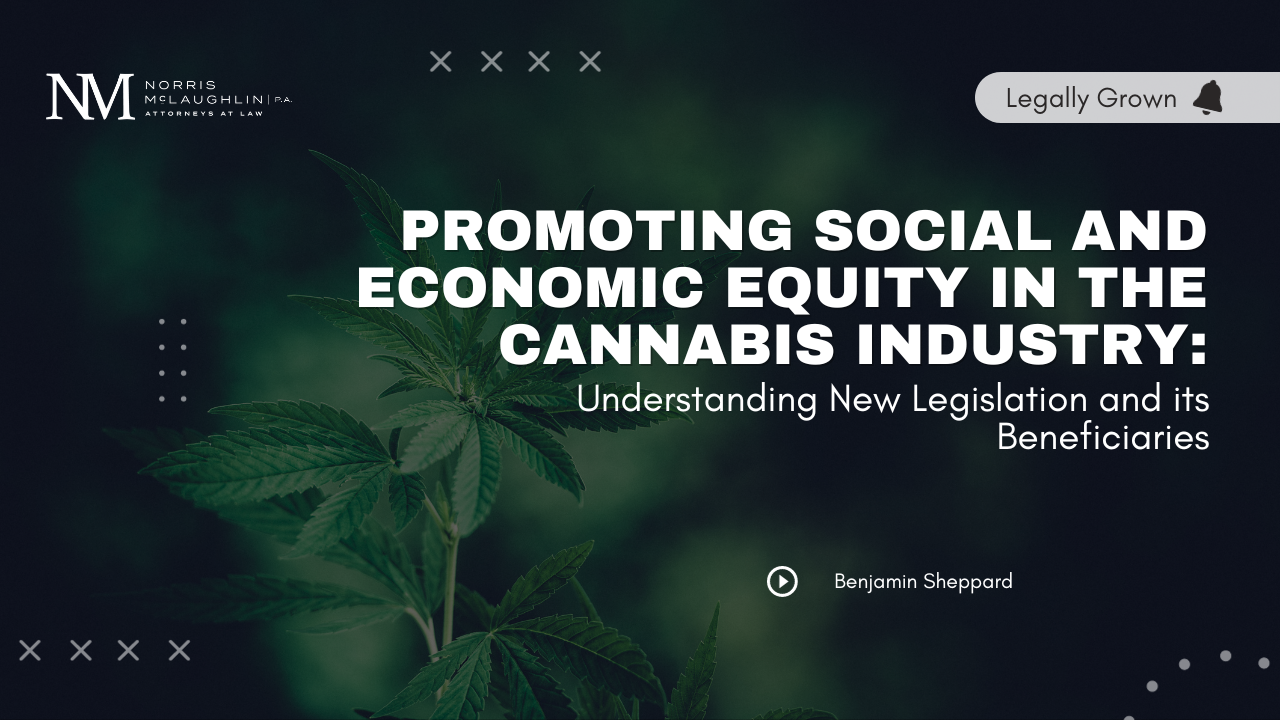Promoting Social and Economic Equity in the Cannabis Industry: Understanding New Legislation and its Beneficiaries

Senate Bill 846 makes a point to include social and economic equity within Pennsylvania’s cannabis sector. The new legislation aims to level the playing field, focusing on creating a more diverse cannabis industry. In this blog post, I break down the key components of this legislation and delve into the qualifications that define a "Social and Economic Equity Applicant."
Who is a "Social and Economic Equity Applicant"?
Understanding who qualifies as a "Social and Economic Equity Applicant" is crucial for interpreting this legislation's scope and impact. Notably, the legislation attempts to define who qualifies, which is a departure from the amorphous points system for medical cannabis applications. Such an applicant must not generate an annual income of more than $75,000 or possess financial assets exceeding $250,000. Moreover, they should meet at least one of the following conditions:
- Comprise at least 75% ownership and control by individuals who have resided for at least five of the preceding 10 years in an area disproportionately impacted by drug laws.
- Comprise at least 75% ownership and control by individuals who
- Have been arrested for, convicted of, or adjudicated delinquent for a cannabis offense eligible for expungement under the legislation, or
- Are members of a family impacted by the war on drugs.
These clear criteria ensure the law’s benefits are spread in a way that helps those most affected by the historical imbalances and injustices in drug-related offenses and economic disadvantages.
The Five Pillars of the Legislation
The law rests on five central pillars designed to advance social and economic equity:
- Promoting Social and Economic Equity
The proposed Cannabis Regulatory Control Board would collaborate with the Department of Community and Economic Development to drive social and economic fairness in the cannabis industry. Every Jan. 1, an annual report will be issued that examines diversity within the sector and offers recommendations to eliminate barriers to entry.
- Financial Assistance
The Commonwealth Financing Authority will establish grant and loan programs aimed at social and economic equity applicants. This financial support aims to lower the barriers to entry that have kept marginalized groups out of the cannabis industry.
- Fee Waivers
Qualified social and economic equity applicants can benefit from a 50% waiver on nonrefundable application and permit fees, thus easing a barrier for such applicants.
- Transfer of Permits
If a permit initially given to a social and economic equity applicant is transferred within five years, the new holder must pay back the waived fees and any outstanding loans or grants. This helps ensure that applicants do not frustrate the purpose of this benefit.
- Regular Assessment and Reporting
The law mandates yearly reports to assess the effectiveness of its provisions, covering topics such as financial assistance awarded, the number of beneficiaries, and economic outcomes.
Conclusion
The new legislation represents a watershed moment for social and economic equity within the cannabis industry. By providing financial aid, fee waivers, and robust evaluation mechanisms, the law aims to create an industry that offers opportunities to those who have historically been left behind.
In the advent of Senate Bill 846 as legislation, keeping updated on the multiple sections of the proposed Bill is vital for both cannabis business owners and those anticipating adult-use. If you have any questions or concerns, please do not hesitate to reach out to me at bsheppard@norris-law.com.




